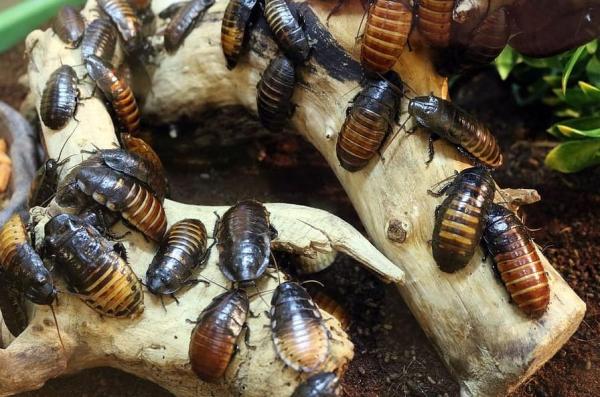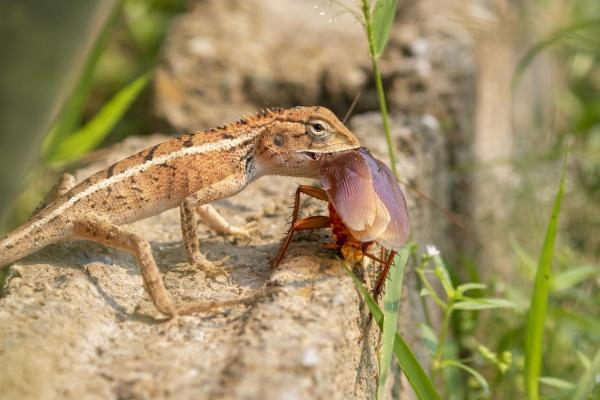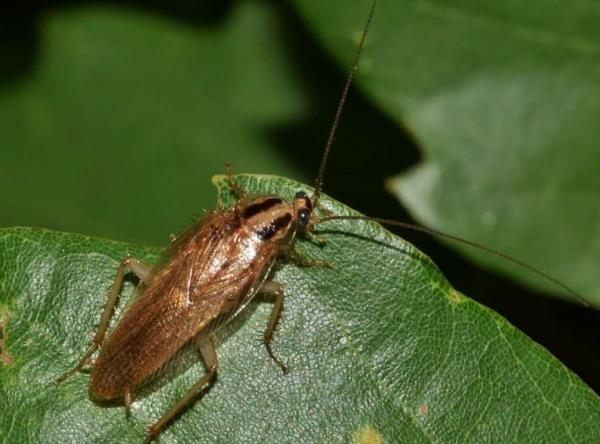
People are afraid of cockroaches for a variety of reasons, both rational and irrational. Firstly, cockroaches are associated with unclean and unsanitary environments. They are also carrier of diseases and bacteria and can even cause allergy in some people. However, cockroaches also play important ecological roles in many ecosystems.
Continue reading this article from thedailyECO to understand why cockroaches exist, the roles they play in the ecosystems in which they live, and what would happen if they disappeared.
What are cockroaches?
Cockroaches are insects that belong to the order Blattodea, the same order as termites. It is believed that cockroaches have been around for about 350 million years.
There are about 4,600 different species of cockroaches worldwide, of which about thirty are associated with spaces inhabited by humans. And of these thirty species of cockroaches, only four are considered pests.
Cockroaches are scavengers and are found in a variety of habitats, including homes, restaurants, and other buildings. They are omnivores and will eat almost anything, including food scraps, dead insects, and even glue and soap. Cockroaches are considered pests because they carry disease-causing bacteria and can cause allergies and asthma in some people.
Cockroaches are very adaptable and can survive in a variety of environments, including extreme temperatures, low oxygen levels, and even radiation. They also reproduce rapidly, with females producing egg cases containing dozens of eggs.
They play an important role in the trophic chain
Cockroaches are an important link in the trophic chain in many ecosystems. As scavengers and decomposers, they help break down dead plant and animal matter by returning nutrients to the soil and making them available to other organisms. These can include bacteria, fungi and other insects, as well as larger animals that feed on them.
In addition, some species of cockroaches are themselves eaten by other animals such as birds, rodents, and reptiles. In this way, they can be an essential food source for higher trophic levels in the ecosystem.
Although cockroaches are not typically considered a keystone species or critical component of most food webs, they do play a role in maintaining the overall health and functioning of many ecosystems.

Some species are pollinators
Pollination is the process by which pollen is transferred from the male reproductive organ of a flower (the stamen) to the female reproductive organ (the stigma), resulting in fertilization and the formation of seeds. It is a critical process that supports plant reproduction and ecosystem functioning, as well as human food production and other ecosystem services.
Some cockroach species participate in pollination by feeding on the nectar and pollen of certain plants. While most cockroach species are considered pests and feed on various organic matter, some species have evolved to feed primarily on nectar and pollen. In doing so, they can inadvertently transfer pollen between flowers and contribute to the pollination of those plants.
An example of a cockroach species involved in pollination is the Madagascar hissing cockroach (Gromphadorhina portentosa). This species feeds on nectar and pollen from a variety of plant species and has been observed carrying pollen on its body, suggesting that it may contribute to pollination of these plants.
While some species of cockroaches may play a role in pollination processes, they are not typically considered important or effective pollinators.
They contribute to the biogeochemical cycling of nitrogen
While cockroaches are primarily known for their role in the decomposition of organic material, they may also play a role in the biogeochemical cycling of certain chemical elements, such as nitrogen.
Cockroaches, like other insects, produce waste in the form of feces and urine. These waste products contain nitrogen, which can be converted by bacteria and fungi into forms available to plants as nutrients. In this way, cockroach waste can contribute to the nitrogen cycle in ecosystems.
Nitrogen is a fundamental element for plant growth. Therefore, the presence of these insects in ecosystems is crucial to introduce this nutrient into the soil and contribute to the maintenance of ecosystems. However, it is important to note that the contribution of cockroaches to the nitrogen cycle is likely relatively small compared to other organisms such as bacteria, fungi, and plants.

What if there were no cockroaches?
It is difficult to predict the exact consequences of removing cockroaches from an ecosystem because they are a complex component of many food webs and ecosystems. Their removal could have some impacts, both positive and negative.
Here are some possible negative impacts if there were no cockroaches:
- Since cockroaches play a role in as decomposers that break down and recycle organic matter, their elimination could potentially disrupt these ecosystems.
- Considering that cockroaches provide food for many animals, removing them could change the dynamics of the predator-prey relationship.
- Cockroaches are often used as model organisms for scientific research, particularly in the fields of neurobiology and physiology. Their elimination could potentially limit our ability to understand certain biological processes.
Let's examine some of the potential positive impacts of eliminating cockroaches:
- Cockroaches are known carriers of several diseases and bacteria, including Salmonella and E. coli. Without them, there may be fewer cases of human disease caused by these pathogens.
- Cockroaches are also a common source of allergens, especially for people with asthma. Without cockroaches, breathing problems caused by these allergens may decrease in some people.
- Some cockroach species can damage crops, so their absence in certain areas could lead to higher yields.
In summary, cockroaches have lived on Earth for hundreds of millions of years and have evolved to occupy a variety of ecological niches in ecosystems around the world. Although it is impossible to know the exact reasons for cockroaches' existence, they do play an important role in their ecosystems as decomposers, recyclers of organic material, and prey for other animals.
You may also be interested in this other article, where we have listed the different types of ecosystems that exist.
If you want to read similar articles to Why Do Cockroaches Exist?, we recommend you visit our Facts about animals category.
- Editorial team (11/13/2018). The houses preferred by cockroaches . National Geographic: Nature . Retrieved from: https://www.nationalgeographic.com.es/naturaleza/actualidad/donde-se-esconden-cucarachas_1346
- Suen, T. & Woo, R. (10/12/2018) The world's largest cockroach farm: see what it's for. Online newspaper La Vanguardia: Natural . Retrieved from: https://www.lavanguardia.com/natural/20181210/453474411614/jinan-china-granja-produccion-cucarachas-reciclaje-residuos-alimentacion.html